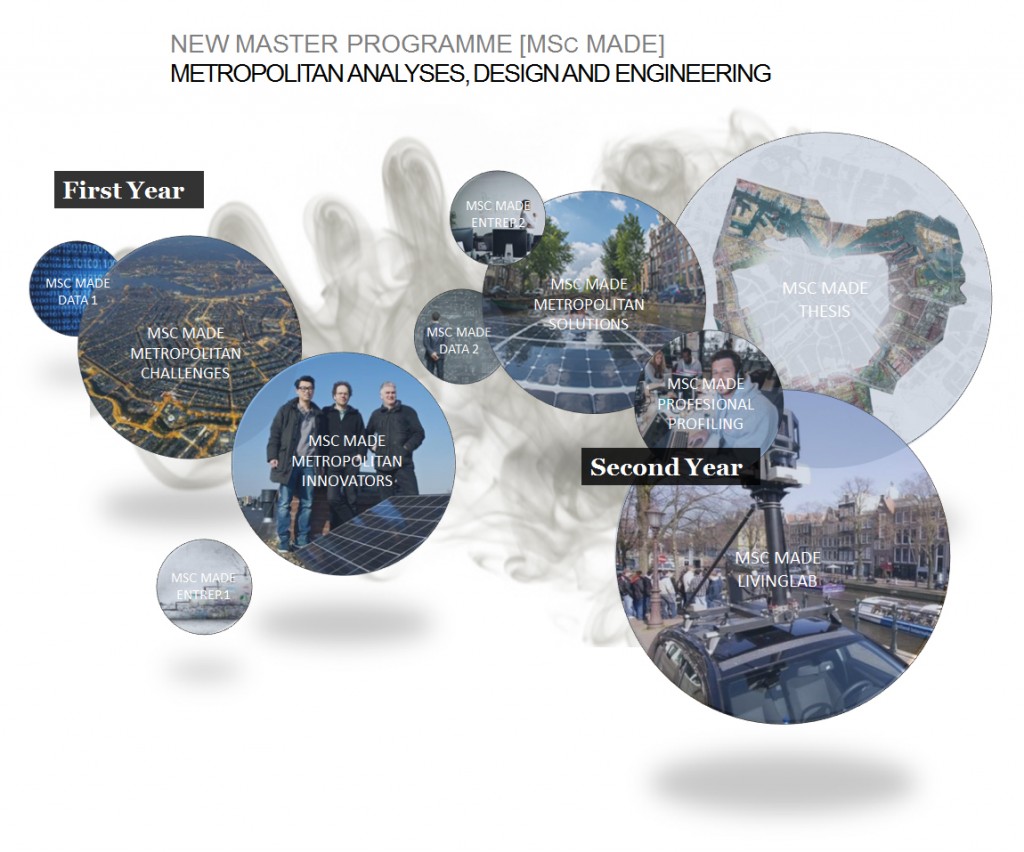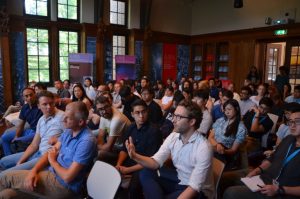|
Delft University of Technology at City as Architecture – Architecture as City 2nd September — 5th November 2017 Seoul Biennale of The International Studio, a program of the Seoul City Architecture Biennale, serves as a bridge of dynamic knowledge linking academics, experts and government officials involved in the Biennale. International studios collaborate on the main themes of the Seoul Biennale through cooperation between 27 universities in Korea and abroad. Participants conduct in-depth research on the field from Changsin-dong in northeastern Seoul to Euljiro in downtown Seoul and Seoul Station in the southwest. |
델프트 공과대학교 서울시건축비엔날레 건축으로서의 도시 – 도시로서의 건축 2017.9.2.—11.5. 서울도시 서울도시건축비엔날레의 프로그램인 국제스튜디오는 비엔날레에 참여하는 학계, 전문가, 정부 관계자들을 연결하는 역동적인 지식의 가교 역할을 한다. 국제스튜디오는 국내외 27개 대학교의 협력을 통해 서울비엔날레의 주요 주제에 대한 공동 연구를 진행하며, 참여자들은 서울 북동부의 창신동에서부터 서울 도심인 을지로 지역, 그리고 남서부의 서울역 지역에 이르는 현장에 대해 깊이 있는 연구를 시도한다. |
Tag Archives: built environment
Exploring Metropolitan Design
The Amsterdam Institute for Advanced Metropolitan Solutions (AMS), the Delft Deltas, Infrastructures & Mobility Initiative (DIMI), and the International Forum on Urbanism (IFoU) joined Delft University of Technology in the organisation of the interdisciplinary 2017 Summer School:‘Making the Metropolis: Exploring Interdisciplinary approaches in Metropolitan Design Engineering’.
Making the Metropolis
Quote
The Amsterdam Institute for Advanced Metropolitan Solutions (AMS), Delft Deltas, Infrastructures & Mobility Initiative (DIMI), the International Forum on Urbanism (IFoU) and Delft University of Technology join together in the organisation of the interdisciplinary 2017 Summer School: Making the Metropolis, Exploring Interdisciplinary Approaches in Design Engineering. (22 to 30 August 2017, in Delft and Amsterdam)
This summer school starts from the observation that today’s revolution of new technologies, theories and methods are making advanced metropolitan solutions possible, but acknowledges that no single actor or stakeholder can make metropoles move in a specific direction. Metropolitan solutions require cooperation between knowledge institutes, companies and governments, as well as between cities, citizens and civil society.
Continue reading
Mastering the Metropolis
As the majority of the world population is living in cities today, urban environments have become a place for many people. We are obliged to aim at sustainability and safeguard people’s quality of life, and human wellbeing. These challenges are motivating science and society to approach metropolises differently. Advanced metropolitan solutions to overcome problems are being made possible by today’s revolution of new technologies, theories and methods. But no actor or stakeholder can make metropoles move in one certain direction. Metropolitan solutions require cooperation between knowledge institutes, companies, governments, between cities, citizens and civil society.
The new MSc programme Metropolitan Analysis, Design and Engineering (MADE) integrates analysis, design and engineering in the sphere of the flows in the city; the physical, digital and social environments; and the city and its citizens. As full master programme, the MSc MADE prepares students to be specialised on one hand and an integrator on the other. A MADE graduate will be able to create synergy between specialists from other disciplinary backgrounds. You can make a cross-over too!

The new trans- and interdisciplinary programme will be offered as a joint degree programme by Delft University of Technology and Wageningen University. It is built on their joint research activities, and consolidated in their participation together with the Massachusetts Institute of Technology (MIT) in the Amsterdam Institute for Advanced Metropolitan Solutions (AMS).
Continue reading
Confronting Views on Public Space
Tom Avermaete and Maurice Harteveld both encourage the architect to take on a socially relevant and culturally related position as safe guarders of the public domain. But what exactly can be the role of the architect in today’s society? Is there an alternative to the modernist position of relative autonomy? Both researchers will give their advice to the architectural profession.
Maurice Harteveld: ‘Design and People, Designers as People’
versus
Tom Avermaete: ‘Public Spaces, Then and Now’
These lectures will take place, on 18 September from 8:45 to 10:30h
at the Faculty of Architecture and the Built Environment, Room A
Delft
Moderator: Hans Teerds

